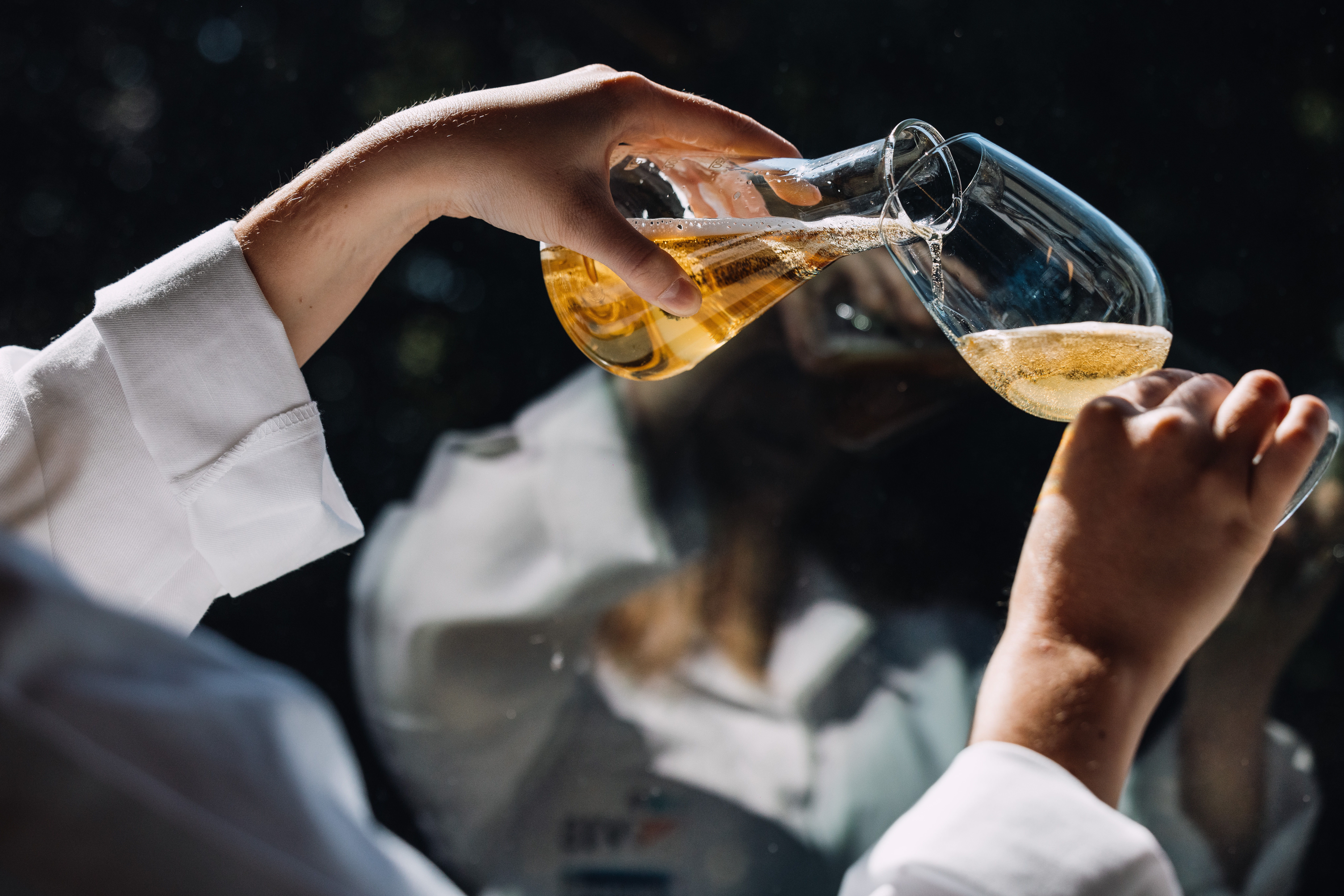Belgian start-up Bar.on raises 1.8 million euros to develop new technology for producing planet-friendly beer in seconds
Beer is a beautiful product, steeped in heritage, tradition and centuries of craftsmanship. However, according to the Belgian start-up Bar.on, the beer industry is at a turning point. In the face of climate change and environmental degradation, the sector has to reduce its carbon footprint and packaging waste. With this mission, Bar.on has teamed up with VIB to bring molecular beer to the B2B and B2C markets. With their beer machines and flavour cartridges, consumers will create any beer they like, including alcohol-free beer, on the spot with tap water. Bar.on’s molecular mixing technology sparked interest among investors, allowing them to collect a seed capital of 1.8 million euros.
The beer industry is at a turning point
People around the world have been brewing and enjoying beer for centuries. Today, beer is the biggest alcoholic beverage in business. Yet, considering the current climate crisis, the beer industry cannot maintain its status quo. By shipping beer across the globe, the industry is emitting vast amounts of carbon dioxide. Furthermore, beer shipping requires a lot of packaging material. This includes not only cans and glass bottles, but also plastic wrapping and protection material to prevent breakage.
“Beer is composed of more than 90% water. That’s the same thing that runs freely from our tap. If we enable people to recreate beer at molecular level with tap water, we can significantly reduce the shipping of branded water, the related carbon footprint and the need for packaging”, says Dirk Standaert, co-founder of Bar.on.
A collaboration with VIB
Re-engineering beer at molecular level requires deep scientific expertise. That’s why founders Dirk Standaert (serial entrepreneur) and Valentijn Destoop (innovation expert) teamed up with professor Kevin Verstrepen at VIB/KU Leuven. The Verstrepen lab has been researching Belgian beer, its fermentation process and aroma compounds for over a decade. They have formulated multiple recipes for world-famous breweries and published a beer encyclopedia called ‘Belgian Beer - Tested and Tasted’. The lab’s extensive knowledge of the correlation between beer composition and taste has served as the foundation for Bar.on’s molecular beer.
What is molecular beer?
In traditional beer brewing, the main ingredients - malt, hops and water - are mixed with yeast. Yeast triggers the conversion of sugars into alcohol. This fermentation process is largely responsible for the specific flavour profile of beer and can take up to several weeks. With Bar.on’s molecular mixing technology no lengthy fermentation process is required. Together with the Verstrepen lab, the start-up has found out how to capture the natural flavour and aroma compounds of beer and store them in small cartridges. These compounds, mixed with water and ethanol, recreate beer at molecular level.
Endless possibilities for customization
With Bar.on’s innovative beer machines, cartridge system and recipes, consumers will make any beer they - and their guests - like in seconds. They can use the recipes provided by Bar.on or experiment freely on their own. The possibilities are endless: from tweaking the flavour of one’s favourite beer to creating something entirely new. Bar.on’s molecular mixing technology offers a wide range of options to consumers at home, the hospitality business and even beer brewers.
Tasty alcohol-free beer in seconds
Bar.on’s technology also allows users to choose the alcohol percentage or to make tasty alcohol-free beer and/or low-calorie beer. Traditionally, there are two production methods to make alcohol-free beer. Using the first method, one brews beer like usual and extracts the alcohol at the end of the process. Alternatively, one halts the fermentation process at an earlier stage to prevent alcoholization. With both methods, a large part of the aroma compounds is lost. Thanks to Bar.on’s instant technology, this will no longer be a problem, as alcohol and aroma compounds are added separately.
“Because we are not restricted by the traditional brewing process, we can add healthy ingredients and natural aromas that are impossible to achieve by traditional brewing,” says professor Kevin Verstrepen.
1.8 million euros in start-up capital
Bar.on’s molecular beer technology sparked a lot of interest from investors. They wrapped up their initial fundraising cycle with a seed capital of 1.8 million euros. Investments were made by Astanor Ventures, Exceptional Ventures, Thia Ventures, Food Ventures | Wolfman.one and a private investor.
“With the start-up capital, we will develop our prototype machines, expand our molecular beer recipes and welcome new talent to our team,” says Valentijn Destoop, co-founder of Bar.on, “We want to offer our consumers the best quality and greatest variety in molecular beer.”
Mixed feelings about molecular beer?
Beer lovers might have mixed feelings about molecular beer. Is it possible to replace a complex process like beer brewing by mixing water, ethanol and flavour compounds? Can molecular beer be as tasty as draft or bottled beer? Well, it seems so. Bar.on’s molecular beer recipes are thoroughly tested, blind-tasted ánd enjoyed by professional beer experts.
Would you like to try molecular beer yourself? From this summer onwards, Bar.on will regularly organize tastings at festivals and events. Find out more on their website www.baron.bar.



